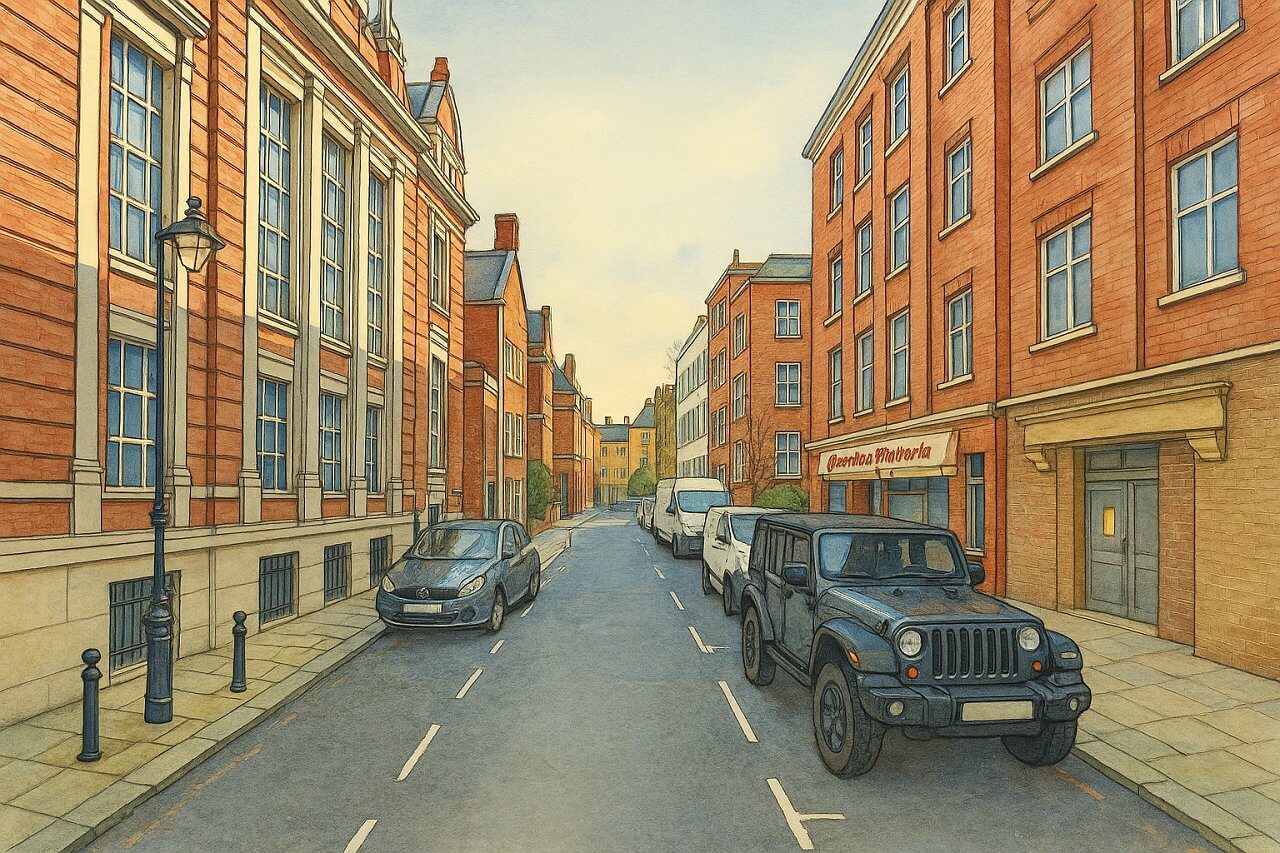
Willow Place, London
A quiet and residential road tucked between Francis Street and Rochester Row, Willow Place offers a central yet peaceful corner of Westminster, with a touch of local history and urban character.
Willow Place is a short road located in the heart of the City of Westminster, central London. It connects Francis Street in the northwest to Rochester Row in the southeast.
It is situated within the Victoria neighbourhood and just a short walk from key landmarks such as Westminster Cathedral, Victoria Street, and the Cardinal Place development. Greencoat Place meets Willow Place in a T-junction on the northern side, roughly halfway along the road.
How Long is Willow Place?
Willow Place is a relatively short street, measuring just over 180 metres (around 590 feet) in length. Though modest in scale, it connects two important through-routes and serves as a quiet local passage in an otherwise bustling area.
History of Willow Place
The area around Willow Place was developed in the mid-19th century during the gradual urbanisation of Westminster. The road appears on Ordnance Survey maps from the 1860s, and its surrounding streets reflect similar Victorian development patterns common in this part of London.
Historically, this part of Westminster was a mixed area of housing, workshops, and charitable institutions, many of which were connected to the nearby Roman Catholic Westminster Cathedral and its social missions. The buildings on Willow Place were likely constructed between 1860 and 1880.
How Did Willow Place Get Its Name?
The exact reason behind the name "Willow Place" is not definitively recorded in local archives, but it was a common 19th-century practice to name streets after natural features such as trees and plants, even in urban settings. The name may evoke a peaceful image in an otherwise industrious neighbourhood.
The street name was formalised by Westminster City Council by the late 19th century. It has retained its name ever since, giving it a sense of heritage within the local streetscape.
The Character of the Road
Today, Willow Place is primarily residential in nature, with a mix of converted Victorian townhouses, mid-20th century council blocks, and some postwar infill development. Many of the properties are now either private flats or maintained by housing associations.
While not grand or commercial, the street is clean, quiet, and typical of this part of Westminster. A notable feature is the Willow Place for Women community facility, which adds a community-focused and socially supportive element to the area.
Real Estate Prices
As of May 2025, real estate prices on Willow Place reflect its central location and close proximity to Victoria Station. One-bedroom flats here range from £540,000 to £650,000, while larger two-bedroom flats may fetch between £750,000 and £950,000.
Typical flat sizes range from around 550–700 sq ft (51–65 sq m) for one-bedroom units to 800–1,000 sq ft (74–93 sq m) for two-bedroom properties.
While prices are lower than those found in neighbouring Belgravia or Pimlico, Willow Place still commands a premium compared to the outer boroughs. Rental properties in this area tend to attract professionals working in Westminster or nearby government offices.
Nearest Underground Stations
The closest London Underground station is Victoria Station, just a 5–7 minute walk from Willow Place. Victoria Station is a major transport hub served by the following lines:
Other nearby stations include St James’s Park (District and Circle lines) and Pimlico (Victoria Line), each within 10–12 minutes on foot.
Bus Connections
Willow Place is well-connected by local bus services. The nearest bus stops are located on:
- Rochester Row (serving routes 11, 24, 148, and 507)
- Victoria Street (serving routes 11, 211, C10 and more)
These stops provide direct access to key destinations such as Westminster Abbey, Oxford Circus, Elephant & Castle, Waterloo, and Kensington.
Fun Fact
Willow Place has one unusual claim to fame—it is home to a long-standing community artwork mural on the outer wall of a former council building, painted by local residents in the 1990s. While modest, it reflects a tradition of grassroots creativity in the area and is occasionally used as a background for local photography and student film projects.
Quick Facts
- Location: Westminster, connecting Francis Street to Rochester Row
- Length: Approximately 180 metres (590 feet)
- Intersecting Roads: Greencoat Place (T-junction on the north side)
- Character: Quiet, residential with a mix of Victorian and mid-century buildings
- Historical Era: Built between 1860–1880
- Name Origin: Possibly named for its tranquil imagery, formalised in the late 19th century
- Nearby Underground Stations: Victoria (Victoria, District, and Circle lines)
- Nearby Bus Routes: 11, 24, 148, 507, C10, and more
- Property Prices (May 2025): 1-bed flats from £540,000; 2-bed up to £950,000
- Flat Sizes: Typically 550–1,000 sq ft (51–93 sq m)
- Fun Fact: Features a locally painted community mural from the 1990s
Map of Willow Place, London

Painting of Willow Place, London (View image in full size)